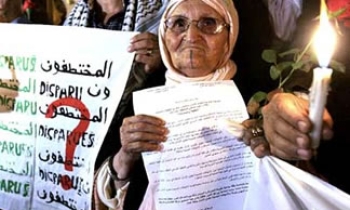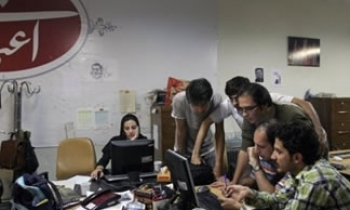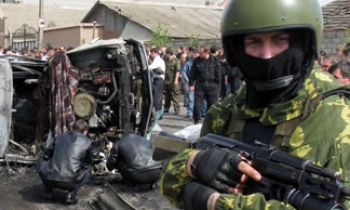With the recent deaths of two CBS employees, the Iraq war officially became the deadliest ever for journalists, with 71 killed. This is more journalists than died in World War II, Korea or Vietnam.
CBS correspondent Kimberly Dozier was also badly injured in the May 29 attack that killed a cameraman and a soundman. Dozier graduated from St. Timothy's School in Baltimore County in 1984.
The Sun and many other American newspapers gave prominent front-page play to the attacks on the CBS journalists. Several Sun readers questioned the coverage.
"While it's appropriate to cover significant attacks against Americans, it seems The Sun considers attacks against members of the news media to be more significant than deaths of soldiers," said reader Kevin Bonds. "Your story profiled each member of the CBS crew in detail but did not list the name of the soldier who also died."
What this reader and others saw as a deliberate attempt to play down a soldier's death was the result of the military's policy of not immediately releasing the names of those killed in action and not releasing details about how they were killed. The perception of bias, although unfounded, remains.
There also has been criticism - most notably from conservative radio personality Laura Ingraham - that the media are misleading their readers and viewers because journalists are afraid to leave their hotels and guarded compounds in Iraq - the Green Zone - to get the "real story."
Sun reporter Robert Little, who recently returned from an assignment in Iraq, has a different perspective:
"The concept of 'hotel journalism' being practiced in Iraq is a joke. I met a CNN crew that traveled through the checkpoints every day and night to visit the Army hospital; an Associated Press reporter whose body armor was threadbare from so much use, and a Stars and Stripes reporter who'd been jumping from embed to embed for six straight weeks. And that was all in one day."
Little traveled with military companies and in Army helicopters, was embedded with military units and went on medical evacuation missions. He called his experience, in relative terms, safe. "Many reporters I met endured more dangerous duty - and all of them had stories about close calls with roadside bombs or bullets," he said.
The first of Little's reports, "The dilemma of caring for wounded Iraqis," ran on The Sun's front page last Sunday. The article describes ethical issues involved in not being able to provide wounded Iraqi soldiers and civilians with the same level of medical care that wounded American soldiers and civilians receive.
Reader Richard Berman said: "Thanks for shedding light on a subject that is under reported here. In fact, I had wondered about this and had never seen it addressed before. Fine report."
Kelly Butler had a different reaction: "I feel that your article left out many necessary pieces to fully make Sun readers understand the difference in medical care. We are there to help, not to make the Iraqi people dependent on America. You are criticizing the different treatment and not explaining why there is a difference. Were you trying to enrage readers?"
Another recent story from Iraq eliciting strong feelings from readers focuses on allegations that U.S. Marines executed as many as 24 civilians, including women and children, in the village of Haditha last November has reminded some of the 1968 My Lai massacre in Vietnam. Events in Haditha also appear to have been triggered by deaths of American soldiers.
The Los Angeles Times' detailed report on the Haditha incident, which ran on The Sun's June 1 front page, generated responses such as this one from reader William B. "This article was gruesome, horrific and one-sided. ... Just remember that most of these Marines are 19 to 21 years old and walking around with lethal weapons and are fighting an elusive enemy that is helped by the local people."
Reader Charlotte Cody said, however, that the notion that the American soldiers "snapped" because of unrelenting pressure obscures the real issue: "Isn't it still murder when you execute children? If you do not care about the children of Iraq, you can't pretend to care about Iraqi freedom."
Opinions about the Iraq war will continue to run the gamut, but the media's efforts to serve as a witness to the actions of the military and to the lives of the Iraqi people remain absolutely essential. It is important to remember that the journalists covering the war - through their presence - are the closest in body and spirit to the soldiers who are operating in harm's way every day.









